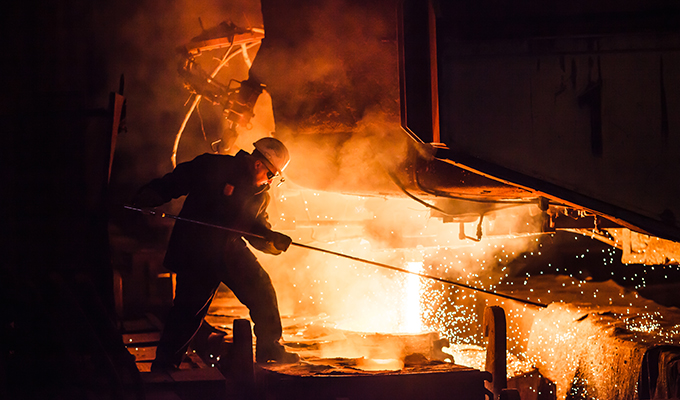The UK government’s support is now “required” for the successful decarbonization of British Steel, according to a statement issued by the Chinese-owned UK integrated steelmaker Jan. 4.
“We’re continuing formal talks with the government about decarbonization, along with the global challenges we currently face,” British Steel said in the statement sent to S&P Global Commodity Insights. It did not provide a value for the amount to be spent on decarbonization of the steelmaker, which has a total steel products capacity of about 3 million mt/year, including rails and constructional steel.
Earlier in the day, The Financial Times reported that UK Chancellor Jeremy Hunt was “being urged by colleagues to find GBP300 million ($361.63 million) in subsidies to help China’s Jingye protect the blast furnaces at British Steel in Scunthorpe.”
China’s Jingye Steel Group has itself invested GBP330 million at British Steel since it acquired the business in March 2020, taking it out of liquidation. At that time the Chinese steelmaker pledged to invest around GBP1.2 billion to modernize and improve British Steel, including by construction of an electric arc furnace in Teesside, in the north of the UK.
The London-based newspaper held as “almost certain” that the government would “step in again” to provide some assistance.
In July 2020, Spanish-owned Celsa Steel UK, the largest UK manufacturer of reinforcing steel with an annual production capacity of 1.2 million mt of long products, was granted an emergency loan by the UK government to allow the company to continue trading amid difficult market conditions caused by the coronavirus pandemic.
Celsa UK produces steel in Cardiff, South Wales, using EAF technology which typically has a lower carbon footprint than the blast-furnace production route. The Celsa loan — estimated at GBP30 million by local media — was linked to a series of conditions, including job-protection, climate change and net-zero targets.
Jingye’s ‘long-term’ commitment
“Jingye are committed to our long-term future but we also require the UK government to provide the necessary support, policies and frameworks to back our drive to become a clean, green and sustainable company,” the British Steel statement said.
“To make sure we can deliver the steel Britain requires, we’re undergoing the biggest transformation in our 130-year history. To support the journey to net zero, our owners, Jingye, have invested GBP330 million in capital projects during their first three years of ownership and they continue to invest unprecedented sums of money in British Steel.”
Major ongoing projects at the steelmaker include installation of a new billet caster, and a mast service center, both of which are scheduled to come online this year.
Steelmaking is one of the UK’s biggest carbon emitters, and is responsible for around 9% of carbon emissions globally.
British Steel added that “the government understands the significant impact the economic slowdown, rising inflation and exceptionally high energy and carbon prices are having on businesses like ours, particularly during such a key period in our transformation.
“British Steel can play a significant role in the UK’s economic recovery and we look forward to working with the government and to making the home-made steel Britain needs for generations to come.”
The UK’s department of industrial strategy BEIS offered no immediate confirmation of ongoing talks between the government and British Steel. However, talks between the parties were already widely reported to have taken place during the COVID-19 markets crisis.
Tata talks
Talks are also reported to be underway between Indian-owned integrated steelmaker Tata Steel UK and the government, including on support for Tata Steel UK’s blast furnace operations.
Tata Steel UK, the country’s biggest steelmaker, has a crude steelmaking capacity of 5 million mt/year and is currently producing around 3.5 million mt/year.
It is understood that the UK government may be more inclined to lend support to the UK’s blast-furnace based steelmakers — namely Tata Steel UK and British Steel — following its approval in December 2022 of a controversial new metallurgical coal mine project in Cumbria in the country’s northwest, which is now facing a new round of opposition by environmental group Friends of the Earth.
West Cumbria Mining’s Whitehouse Colliery project at Whitehaven, with an expected 3.1 million mt capacity to produce coking coal for steelmaking, could potentially supply coal to both Tata Steel UK and British Steel.
Platts, part of S&P Global Commodity Insights, assessed hot-rolled steel coil in Northwest Europe up Eur15/mt ($15.91/mt) at Eur700/mt ($742.56/mt) ex-works Ruhr Jan. 4.
— Diana Kinch






